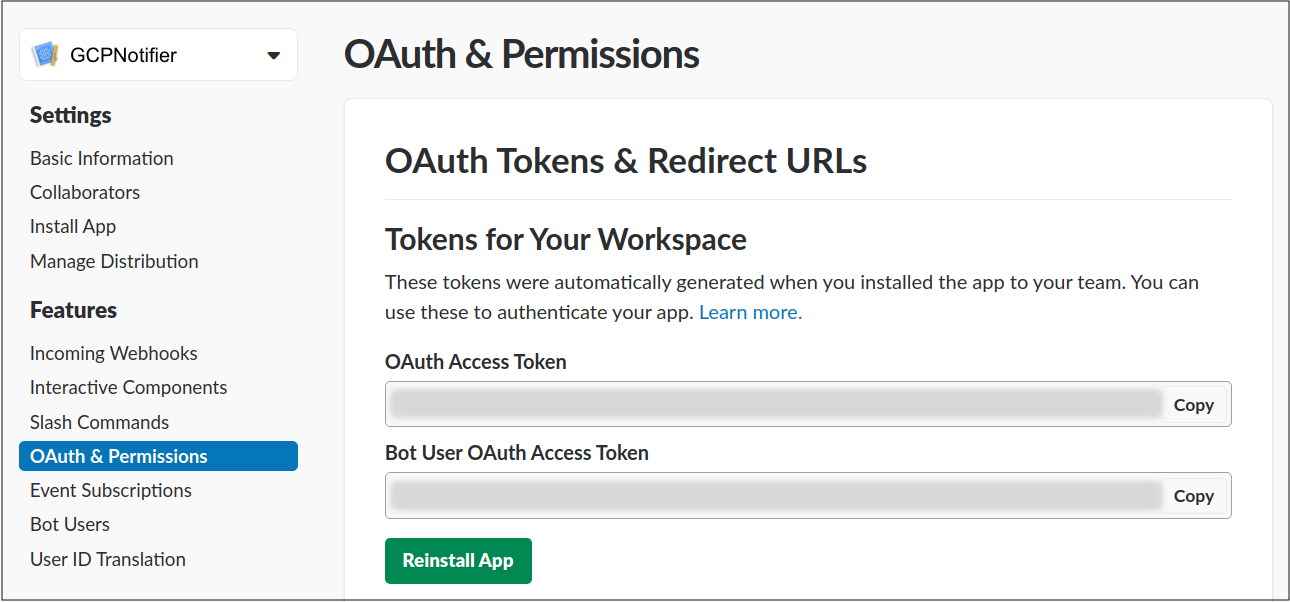Neste documento, explicamos como enviar notificações de orçamento para o Slack.
Os orçamentos geralmente são configurados para enviar notificações por e-mail. No entanto, o e-mail nem sempre é a melhor maneira de se manter a par dos custos na nuvem, principalmente se o orçamento for crítico e urgente. Com as notificações programáticas, é possível encaminhar suas mensagens de orçamento para outras mídias, como o Slack.
Antes de começar
Antes de começar, conclua as seguintes tarefas:
Configurar um canal e permissões do Slack
A primeira etapa é criar seu espaço de trabalho no Slack e os tokens de usuário do bot que são usados para chamar a API Slack. É possível gerenciar os tokens da API em https://api.slack.com/apps. Para instruções detalhadas, consulte Usuários de bot no site do Slack.

Configurar uma função do Cloud Run
Conclua as etapas em Criar uma função do Cloud Run. Verifique se o Tipo de gatilho está definido como o mesmo tópico do Pub/Sub que o orçamento vai usar.
Adicione as seguintes dependências:
Node.js
Copie o seguinte para o
package.json:Python
Copie o seguinte para o
requirements.txt:Copie o código a seguir na sua função do Cloud Run para postar notificações de orçamento em um canal de chat do Slack usando a API Slack:
Node.js
Python
Verifique se os seguintes parâmetros postMessage da API Slack estão configurados corretamente:
- Token de acesso do OAuth do usuário de bot
- Nome do canal
Testar a função
Para garantir que a função funcione conforme o esperado, siga as etapas em Testar uma função do Cloud Run.
Se for bem-sucedida, uma mensagem vai aparecer no Slack.
A seguir
Confira outros exemplos de notificações programáticas para saber como fazer o seguinte:
- Ouvir as notificações
- Controlar o uso de recursos com notificações
- Desativar o uso do faturamento com notificações

